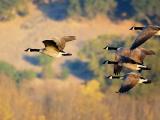Mar 11, 2004 (CIDRAP News) – Asia's battle with avian influenza continued as new outbreaks were reported in Thailand and Taiwan, while the United Nations Food and Agriculture Organization (FAO) warned countries not to rebuild their flocks prematurely.
In Thailand, the Bangkok Post reported today that a plan to declare the country free of avian flu next week was ruined by the discovery of an outbreak in Chang Rai province. The story said tests at Kasetsart University confirmed on Feb 26 that a chicken from the province was infected with the highly pathogenic H5N1 virus, which has damaged the poultry industry in at least eight Asian countries.
Deputy Agriculture Minister Newin Chidchob was forced to confirm the case after a Thai-language newspaper published a story about it, the Post reported. Newin had planned to declare Thailand free of avian flu Mar 16, but the latest case has forced him to change that, the newspaper said.
Newin said all chickens within 1 kilometer of the affected farm were destroyed after the case was confirmed, according to the report. An Associated Press report said the farm is about 420 miles north of Bangkok.
In Taiwan, a new outbreak of a milder version of avian flu was reported on a chicken farm in the southern part of the country, according to an Agence France-Presse (AFP) report yesterday. That report did not specify the viral subtype but said that 467,000 birds have been slaughtered in Taiwan since H5N2 avian flu was first detected there in mid-January.
The FAO warned today that countries that restock their poultry farms too soon risk new flare-ups of the disease. Without naming any countries, the agency said some are preparing to declare certain areas disease-free and start rebuilding flocks.
"In the battle against the disease, there are definitely some improvements," said Joseph Domenech, chief of the FAO Animal Health Service. "But we fear that the virus may continue to circulate in the environment even without an outbreak or any clinical signs in animals."
The agency said certain precautions are essential to ensure that previously affected areas are disease-free before flocks are rebuilt. Countries must:
- Prove the virus has stopped circulating through virus research, serologic surveys, and the use of unvaccinated "sentinel" chickens
- Monitor the movement of poultry and contaminated goods to avoid reintroduction of the virus from other areas
- Prevent contact between domestic and wild birds
- Use intensive surveillance for quick detection of potential new infections
Countries will have to prove they are free of avian flu, and have their status verified by international experts, before they can resume exports, the FAO said.
In other developments, the Canadian Food Inspection Agency said this week that an outbreak of H7N3 avian flu reported in February on a British Columbia farm involved both highly pathogenic and low-pathogenic forms of the virus. All the birds on the farm were euthanized Feb 20, and the risk to human health remains low, the agency said.
A report in the Toronto Star said tests showed the virus was in the process of changing from a low-pathogenic to a highly pathogenic form. The report also said another farm in the area was quarantined Mar 9 after an apparent mild illness was observed in some birds there. The birds were being tested, the story said.
Also today, the US Department of Agriculture (USDA) said tests have confirmed that the avian flu at a farm in Pocomoke City, Md., is "an H7N2 subtype with a sequence that suggests low pathogenicity." The outbreak there was reported last weekend, prompting destruction of 118,000 birds on the farm.
See also:
FAO statement
http://www.fao.org/newsroom/en/news/2004/38427/index.html
Canadian Food Inspection Agency's avian flu page
http://www.inspection.gc.ca/english/anima/disemala/avflu/avflue.shtml




















